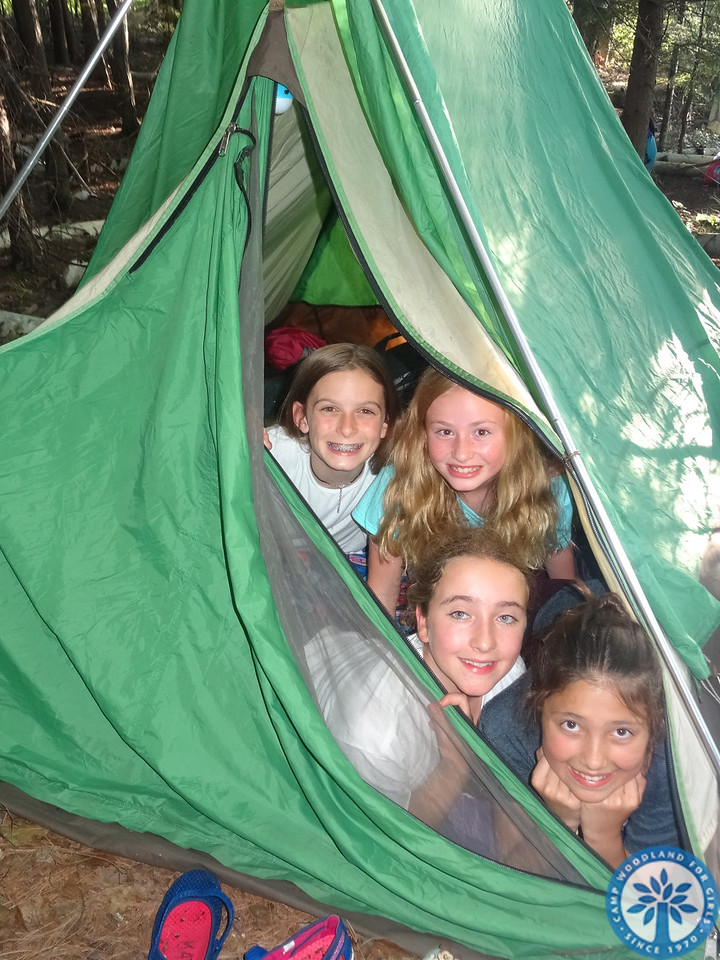Monthly Archives:October 2020
What Camp Woodland Can Do That Google Cannot
In a blog I read recently by Growing Leaders (excerpts are italicized below), Dr. Tim Elmore talks about how parenting, teaching, and coaching are different today, not because kids are different but because the culture is different. We are raising them in a society where Siri and Alexa offer quick answers, creating eight-second attention spans and expectations that solutions should be instantaneous and that life should be entertaining.
It’s not our kids’ fault, but it is our kids’ reality. (most definitely!)
We are at a fork in the road. We can either choose to compete with today’s on-demand, instant access entertainment or we can choose to offer what the digital world cannot. We must adapt to the world they’re growing up in, but we don’t have to adopt every new trend that surfaces along the way. Adapting simply means we recognize what kids gain from this new world and we complement it.
Kids today experience a Google reflex. (I have a Google reflex myself! You?)
Kids are asking Google questions they used to ask adults in their world. What we must recognize is kids don’t lack information. They don’t need us for that; Alexa actually knows more than I do most of the time. They need us for interpretation. All the sources of content they access can offer information, but not a worldview with which to interpret that information. Young people are drowning in information but starving for wisdom.
There is no downtime. They’re screenagers, always on and always online. They spend more time reacting to content than reflecting on content. And because there are so many posts, it leaves a little margin to invest time in any one issue. A wealth of information creates a poverty of attention. So, our responsibility is not to compete against this but to compliment it by offering what they still lack.
Dr. Elmore states that “Our goal should not be to compete but to complete.” To this end, he gives a list of 7 things that young people need more than ever today. It just so happens that every item on his list represents one of our core values, the very foundation for our program at Camp Woodland for Girls since 1970.
1. Authentic and transparent relationships.
We provide opportunities for genuine connections to form within the Camp Woodland community. Cabin groups allow for a special bond to occur between similar aged campers and 2-3 counselors. Younger campers look up to and are mentored by older campers in activities. There is nothing but “real” face time as we engage in conversations where it is important to read and interpret social cues and communicate compassionately.
2. Interactive learning experiences.
We learn to sail, ride a horse, shoot a bow, do a forward roll, take care of farm animals, create in arts & crafts, paddle across the lake, dance, put together a play, and so much more without a single YouTube video or Zoom lesson. We navigate the ups and downs that come with the creation and duration of friendships.
3. Empathy.
“You think your backpack is the heaviest until you pick up someone else’s by mistake.” (Cynthia Copeland Lewis)
4. Significant people in their lives.
Being around near-peers (5-10-15 years removed), campers make connections with counselor and staff role models who by their example inspire confidence and growth towards what is possible.
5. Travel experiences to someplace they’ve not been.
We bring campers and staff together from all corners of the globe. Our camp community represents a variety of geographic locations, ages, backgrounds, values, interests, and socio-economic status. Being exposed to different cultures makes us more empathetic and understanding. As a result we are better able to work collaboratively with those who have a different view or perspective.
6. Growth guided by questions.
We provide hands-on learning through discovery and exploration. What if…?, how about…? and why? are always welcome. Guided trial-and-error mixed in with developmentally appropriate challenges are the best teachers of both the technical and people skills gained from the Woodland experience.
7. Autonomy in the goals they set.
Having the opportunity to make decisions that are not influenced by parents and teachers gives campers a sense of independence in their voice and choice. Selecting activities, pursuing friendships, setting and reaching goals, planning camp-wide events, and caring for self are just some of the ways campers have a vote in their overall experience.
Camp today. Thrive tomorrow.
We never take for granted the unique role we play in the lives of our campers. Camp Woodland is a place where kids learn, grow and develop in a positive community (we spend a good chunk of our time OUTSIDE and without the pressures of society and technology!). The skills campers learn last far beyond their years at camp and specifically help them in school, when they attend college, and in their first jobs (and there is research to back this up!). Camp Woodland is an experience that sets up young people for success as they enter adulthood.
Camp Woodland does what Google cannot.
To read the entire Growing Leaders blog: What Parents and Teachers Can Do that Google Cannot







